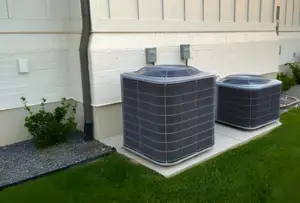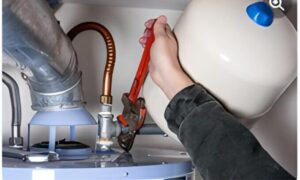Revitalizing older buildings is a meticulous process that requires careful attention to various aspects of renovation. While many property owners and managers focus on updating the aesthetics and functionality of these structures, one crucial element often goes unnoticed – the cleanliness of air ducts.
Neglected air ducts in older buildings can accumulate an array of contaminants over time, posing both health risks and potential damage to mechanical equipment.
In this discussion, we will uncover the importance of cleaning air ducts in older buildings and how it can significantly improve air quality, reduce dust accumulation, and enhance the performance of HVAC systems.
By delving into the benefits and professional methods of air duct cleaning, we will shed light on a critical aspect of building revitalization that is often overlooked.
Reasons to Clean Air Ducts in Older Buildings
Cleaning air ducts in older buildings is essential for various reasons. One reason is to eliminate musty, mildew odors caused by mold and microorganisms that accumulate in the ductwork over time. These odors can be eliminated by professional air duct cleaning and mold remediation.
Another reason is to improve air quality. Contaminants such as tobacco smoke particles, smog, dust, VOCs, pollen, mold, and bacteria can accumulate in the ducts and affect the health of the building occupants. By cleaning the air ducts, the concentration of allergens and illness-causing bacteria in the air can be reduced.
In addition, cleaning air ducts helps to reduce dust accumulation. Dust can harm mechanical equipment and create a negative impression on customers. By cleaning the air ducts, dust accumulation can be minimized.
Lastly, cleaning air ducts ensures optimal HVAC system performance. Obstructions in the ducts can hinder airflow and reduce the efficiency of the HVAC system. By removing these obstructions, airflow is improved, leading to better energy efficiency and preventing repair issues.
Eliminating Odors and Improving Air Quality
To ensure a healthy and pleasant environment in older buildings, it is crucial to address the issue of eliminating odors caused by mold and microorganisms, as well as improving air quality by removing contaminants.
Musty, mildew odors in older buildings can be caused by mold and microorganisms in the ductwork. Professional air duct cleaning and mold remediation may be necessary to banish odors and improve air quality.
Moisture, dust, and microorganisms can build up in ducts over time, leading to odor issues. Inspecting ducts for mold and cleaning them can eliminate the source of odors in the building.
Improving air quality by removing contaminants can also help eliminate unpleasant odors. Contaminants in the air, such as tobacco smoke particles, smog, dust, VOCs, pollen, mold, and bacteria, can accumulate in ducts and affect the health of people in the building.
Cleaning air ducts can help reduce the concentration of allergens and illness-causing bacteria in the air. Regularly changing HVAC air filters can also contribute to improving air quality.
Reducing Dust Accumulation
Excessive dust accumulation in air ducts can have detrimental effects on mechanical equipment and create a negative impression on customers in older buildings. To address this issue, it is important to prioritize reducing dust accumulation in air ducts. Here are three key reasons why this is crucial:
- Protecting mechanical equipment:
Dust buildup in air ducts can clog filters, reduce airflow, and cause strain on HVAC systems. This can lead to increased energy consumption, reduced effectiveness, and potential equipment failures. Regular cleaning of air ducts helps to minimize dust accumulation, ensuring optimal performance and longevity of mechanical equipment.
- Enhancing indoor air quality:
Dust particles can circulate in the air, causing respiratory problems and allergies. By reducing dust accumulation in air ducts, the amount of dust circulating in the building is significantly reduced. This contributes to improved indoor air quality, creating a healthier and more comfortable environment for occupants.
- Improving customer satisfaction:
Excess dust in older buildings can create a negative impression on customers, particularly in establishments such as restaurants, fitness facilities, and healthcare facilities. Regular air duct cleaning helps to maintain a clean and dust-free environment, enhancing customer satisfaction and overall experience.
Enhancing HVAC System Performance
Reducing dust accumulation in air ducts not only protects mechanical equipment and enhances indoor air quality but also plays a crucial role in maximizing the performance of HVAC systems in older buildings.
Dust buildup in air ducts can restrict airflow, leading to decreased efficiency and increased energy consumption. This can result in longer running times, higher utility costs, and potential damage to the HVAC system.
By cleaning air ducts and ensuring unobstructed airflow, the system can operate more effectively, providing better heating and cooling performance. Additionally, clean air ducts can help maintain proper humidity levels and prevent issues such as frozen coils and water leaks.
Regular maintenance and cleaning of air ducts by professionals can significantly enhance the overall performance and lifespan of HVAC systems in older buildings.
Professional Air Duct Cleaning and Mold Remediation
Professional air duct cleaning and mold remediation are essential services for maintaining the cleanliness and air quality of older buildings. Here are three reasons why these services are crucial:
- Eliminate musty, mildew odors: Mold and microorganisms in the ductwork can cause unpleasant odors in older buildings. Professional cleaning and mold remediation can eliminate the source of these odors and improve air quality.
- Improve air quality: Contaminants such as tobacco smoke particles, smog, dust, VOCs, pollen, mold, and bacteria can accumulate in ducts over time. Cleaning air ducts helps remove these contaminants, reducing the concentration of allergens and illness-causing bacteria in the air.
- Reduce dust accumulation: Excess dust in older buildings can harm mechanical equipment and create a negative impression on customers. Cleaning air ducts removes accumulated dust, reducing the amount of dust in the air and contributing to a cleaner environment.
Frequently Asked Questions
How Often Should Air Ducts in Older Buildings Be Cleaned?
The frequency of cleaning air ducts in older buildings depends on factors such as the building's occupancy, air quality, and maintenance practices. Generally, it is recommended to clean air ducts every 3-5 years to ensure optimal performance and indoor air quality.
What Are the Potential Health Risks Associated With Dirty Air Ducts?
Dirty air ducts in older buildings can pose potential health risks. Contaminants like mold, bacteria, pollen, and dust can accumulate and circulate in the air, leading to respiratory problems and other health symptoms. Cleaning air ducts can help reduce these risks and improve indoor air quality.
Can Cleaning Air Ducts in Older Buildings Help Reduce Energy Consumption?
Yes, cleaning air ducts in older buildings can help reduce energy consumption. By removing obstructions and improving airflow, HVAC systems can operate more efficiently, resulting in lower energy usage and reduced utility costs.
How Long Does the Process of Cleaning Air Ducts Typically Take?
The process of cleaning air ducts in older buildings typically takes several hours to complete. The duration can vary depending on the size of the building, the complexity of the ductwork system, and the level of contamination present.
Are There Any Specific Signs or Indicators That Air Ducts in Older Buildings Need to Be Cleaned?
Signs that air ducts in older buildings may need cleaning include musty odors, poor air quality, excessive dust accumulation, reduced HVAC performance, and the presence of pests or vermin. Regular inspection and cleaning can help maintain a healthy and efficient indoor environment.
Conclusion
In conclusion, cleaning air ducts in older buildings is crucial for revitalization efforts. By removing contaminants such as mold, dust, pollen, and bacteria, musty odors can be eliminated, and the overall air quality can be improved.
This not only benefits the health and comfort of occupants but also helps protect mechanical equipment from damage and creates a positive impression on customers. Additionally, clean air ducts enhance the performance of HVAC systems, promoting efficient airflow and operation.









